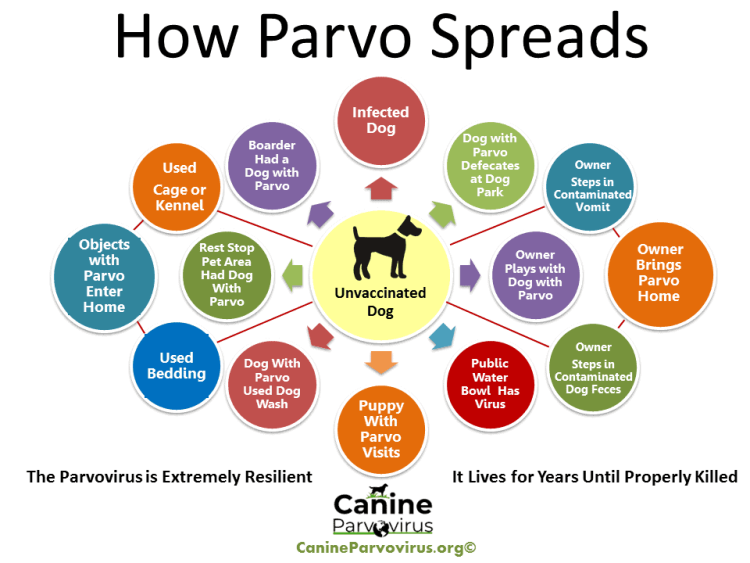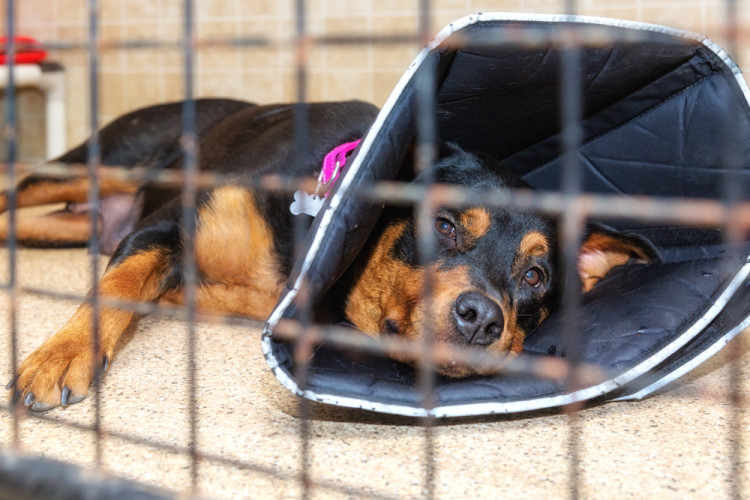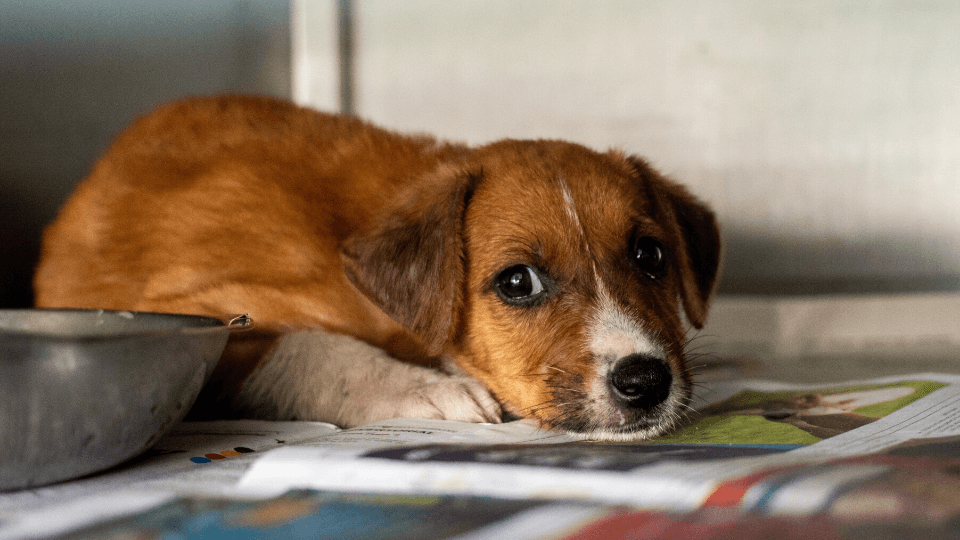It isn’t pleasant to think about, but there are a lot of illnesses that can affect our cats and dogs. Vaccines are one of the best lines of defense against many of the worst viruses out there. But even vaccinated animals can get infected with serious diseases, so it is important to know about them.
Parvovirus — often called “parvo” or “FP” (feline parvovirus in cats)— is one such illness. Not only is it highly infectious, but it can get your pet sick even if they have been vaccinated against it, though vaccinating does greatly reduce your pet’s risk of contracting parvo.
Parvo is also expensive to treat. With diagnosis and treatment, parvo can cost between $500 and $2,000 on average. You could end up paying more if your pet needs to be hospitalized for an extended period of time.
Your best course of action is to take preventive measures to avoid parvovirus infection in the first place. Here, we’ll explore the signs of parvovirus, the available treatments, and what you can do to prevent it. We’ll also explain how pet insurance can help in the event your pet does get sick.
Symptoms of Parvovirus in Dogs and Cats
Parvo is a highly contagious viral disease that affects a pet’s gastrointestinal system. It is more common in puppies and kittens than in older pets, although pets can get it any age.
Parvovirus can kill an animal within 48 to 72 hours after they start showing clinical signs of the disease.
Parvo is one of the deadliest diseases for puppies.
Some of the symptoms of parvovirus include:
- Bloating and abdominal pain
- Dehydration
- Fever or hypothermia
- Intestinal inflammation (parvoviral enteritis)
- Lethargy
- Loss of appetite
- Severe and bloody diarrhea
- Severe vomiting
Bloody diarrhea is one of the most common symptoms of parvovirus. You should bring your pet to the vet immediately if they have this symptom, and you should seek medical assistance as soon as possible if they have any of the other symptoms above, especially if your pet is young or not vaccinated against parvovirus.
How parvo spreads
Both dogs and cats can be infected with parvovirus, but feline parvovirus is a different strain than canine parvo. That means a cat can’t infect a dog with feline parvovirus, and vice versa. Even humans can be infected by a strain of parvovirus, but none of the strains can infect other species.
Parvovirus is often transmitted when an animal comes into contact with another animal’s contaminated feces. But almost anyone or anything can carry Parvovirus. The virus can be transmitted when it clings to the environment or people.
 (Image Source: Canine Parovirus)
(Image Source: Canine Parovirus)
Transmission is more common among younger, unvaccinated pets and in crowded places like kennels or dog parks. According to the American Veterinary Medical Association (AVMA), canine parvovirus can “contaminate kennel surfaces, food and water bowls, collars and leashes, and the hands and clothing of people who handle infected dogs. It is resistant to heat, cold, humidity, and drying, and can survive in the environment for long periods.”
How Parvo is Treated
The good news is that parvo is treatable!
After a parvo diagnosis, your veterinarian will likely want to hospitalize your pet so they can be treated with intravenous fluids and antibiotics. Some animals may need blood or plasma transfusions, or other forms of fluid therapy. They may also provide your pet with injected medications that relieve their symptoms such as nausea and vomiting.

Because it is a virus, there is no “cure” available for parvo. Your pet’s immune system will need to fight it off with the help of supporting treatments provided by your veterinarian.
Once your pet is sent home, you’ll need to keep a close eye on them while they continue to recover. You’ll need to re-introduce foods slowly, so your pet may depend on supplements and nutritional support before they get back to normal.
If you have other pets, you’ll need to quarantine your infected animal, so they don’t become infected as well. You may also need to regularly clean surfaces, your clothes, and your hands to prevent further spread. Even petting an infected dog could spread the virus to other parts of your home, visitors, or other pets.
The Average Cost of Parvo Treatment for a Dog or Cat
Parvovirus is less expensive to treat in cats and smaller dogs, such as puppies, but it can still cost thousands of dollars. As we mentioned before, parvo costs between $500 to $2,000 to treat on average. However, the reality is that it depends entirely on your pet, their condition, the hospital you go to, and the amount of time they must be boarded at the hospital.
At some pet hospitals, treatment for parvo can cost as much as $8,000 for a dog.
Pawlicy Advisor conducted a survey across more than 20,000+pet parents showed that half of pet parents (49.7%) wouldn’t be able to cover a $5,000 pet expense. Another 30.86% would need to seek financing options to cover the cost.
Because it is so expensive to treat, parvovirus is a common cause of economic euthanasia. This unfortunate circumstance occurs when a pet has a life threatening illness or injury and their pet parent cannot afford to pay for treatment so they opt to euthanize their animal instead of pursuing treatment or letting the animal suffer. If you’re concerned about the costs of treating parvovirus, pet insurance can be a literal lifesaver.
How to Avoid Parvovirus in Your Dogs and Cats
The best thing to do is to keep your pet healthy and avoid parvovirus altogether.
Although vaccinated pets can still contract parvo, they often have much milder symptoms and their likelihood of contracting the virus is significantly lower than an unvaccinated animal. Making sure your pet is up to date on their parvo vaccine greatly lowers their risk and is your best line of defense.
Keep your young pets away from other animals until they have been fully vaccinated. You may want to show off your new puppy at the dog park, but you can never be sure whether the dogs they will come in contact with in public places are healthy and free of parvo virus or other diseases your youngster hasn’t been vaccinated against yet. Also, try to keep your pet away from other animals’ feces, as this is a common way parvovirus is spread.
If you have a new puppy or a new kitten, don’t avoid scheduling their vaccinations with your vet. Many pet insurance plans cover the costs of your pet’s initial vaccination schedule as well as the treatment for parvo if they get infected.
If you’re about to adopt, you can find the perfect pet insurance plan from top providers right now with Pawlicy Advisor's comparison tool and protect your new pet from parvovirus.
